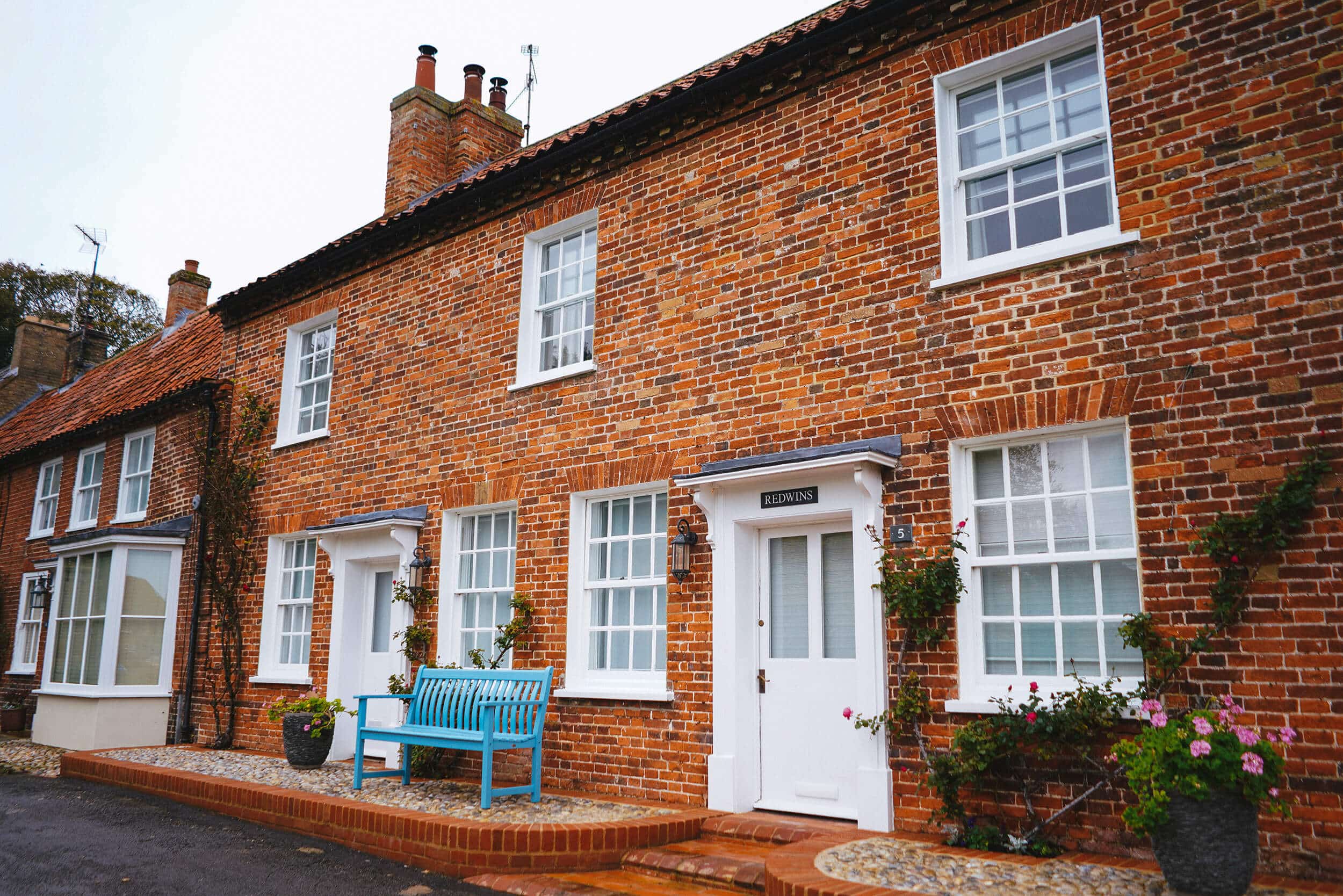

The Right to Buy scheme offers council house renters the opportunity to purchase their property at a discounted price, providing a clear path to homeownership. The Right to Buy scheme was introduced so council house tenants could have the chance to take control of their living situation and get onto the housing ladder.
Under the Right to Buy scheme, eligible council house renters have the right to buy their property from the local authority or housing association they are renting from. The discount available will depend on certain criteria, one of the main ones being the length of time the tenant has been living in the property; longer tenancies often result in a larger right-to-buy discount.
This scheme has been proven to be a lifeline for many renters, allowing them to escape renting, and build equity in their own homes. Homeownership provides stability and security, offering protection against rising rents as well as a sense of belonging within the community.
To qualify for the Right to Buy scheme, specific criteria must be met, for example, having a secure tenancy, living in the property as the main residence, or having been a council house tenant for a specific period of time. The exact requirements, however, will vary depending on the local authority or housing association.
Firstly, you need to have a secure tenancy. This means that your tenancy agreement is not temporary or probationary. This will confirm you have a long-term link to the property.
Secondly, the property you are renting must be your main residence. This means that it is the place where you live permanently and where you are registered for important documents such as your electoral roll and council tax.
Additionally, you must have been a council house tenant for a set amount of time, usually at least three years as set out by the council. The exact length of time required, however, may vary depending on the local authority or housing association.
It’s also worth noting that there may be additional criteria set by your local authority or housing association, including factors such as income, whether there are any outstanding debts, and if you have any history of anti-social behaviour.
When you meet the criteria, you can proceed and apply for a Right to Buy mortgage.
A Right to Buy mortgage gives you the opportunity to invest your money, instead of paying rent into (and essentially contributing to) someone else’s investment. By making regular payments to your mortgage, you will over time completely own the property, providing you with a valuable asset.
Homeownership offers greater stability and security compared to renting. With a Right to Buy mortgage, you can say goodbye to the uncertainty of rent increases. Your mortgage payments will remain consistent, allowing you to plan your finances more effectively.
Homeownership also offers greater stability and security compared to renting. With a Right to Buy mortgage, you can say goodbye to the uncertainty of rent increases, and when you take out a mortgage, you can opt for a fixed-rate mortgage, meaning you will have certainty over your monthly outgoings. This may allow you to plan your finances more effectively.
In addition, you will now own an asset, which may go up in value over time, increasing your equity share and, in turn, your net wealth. However, it is important to remember the value of the property may also go down, and if you want to move home, selling the property will likely take longer and cost more than ending a tenancy agreement.
Another advantage of Right to Buy mortgages is the freedom to customise and personalise your property. As a homeowner, making changes and improvements to your home, like renovating the kitchen or adding an extension can be done without seeking permission from outside parties. This level of control over your living space is not typically available to renters.
Furthermore, owning a home can positively impact your finances. Making regular mortgage payments demonstrates financial responsibility and can improve your creditworthiness. This will be especially useful when applying for other types of credit in the future.
Lastly, by purchasing your council house through the Right to Buy scheme, you may be eligible for a significant discount on the purchase price, making the process of obtaining a mortgage more feasible.
Overall, the benefits of a Right to Buy mortgage are numerous and can have a transformative impact on your life. From building equity and financial stability to the freedom of customisation, homeownership offers a range of advantages that renters should seriously consider.
Applying for a Right to Buy mortgage can seem like a daunting process, but with the right guidance, it can be made simple.
1. Gather Necessary Documents: Start by gathering all the necessary documentation you will need to support your application. This usually includes proof of identity, residency, the latest three months’ bank statements and the latest three months’ proof of income. You may also have to bring other documents required by your lender or local authority.
2. Check Your Credit Score: Your credit score plays a pivotal role in determining your mortgage eligibility. Before applying, you should check your credit score to address anything that may negatively affect your application. Paying off outstanding debts and ensuring your credit history is accurate can help improve your chances of approval.
3. Seek Mortgage Advice: Seek some professional advice before proceeding with a mortgage application. A mortgage advisor will help you understand what mortgages are available to you, and help to compare interest rates, guiding you through the application process.
4. Apply for a Mortgage Agreement in Principle: Before making an offer, it’s advisable to get a mortgage agreement in principle (AIP). The AIP document confirms that a lender is willing to lend you a certain amount, based on an initial assessment of your finances. Having an AIP can strengthen your position as a buyer and give you a clearer idea of your budget.
5. Submit the Mortgage Application: This involves your mortgage broker liaising with the lender and providing all relevant information to them regarding your application. The lender will then review everything and ensure you meet all of their criteria. Your mortgage broker will have the expertise to know if the lender is suitable for your circumstances, as this forms part of their recommendation.
6. Property Valuation and Legal Process: Once your mortgage application is submitted, the lender will arrange for a property valuation to assess its market value. Simultaneously, you will need to engage a solicitor or conveyancer to handle the legal aspects of the purchase. You can ask your mortgage advisor to recommend a solicitor for you.
7. Mortgage Offer and Exchange of Contracts: If the property valuation is satisfactory and all legal requirements are met, the lender will issue a formal mortgage offer. At this stage, contracts can be exchanged, legally binding both parties to the sale.
8. Completion: The last and final step is completion, where the remaining funds are transferred, and you officially become the owner of the property. You can now relax and enjoy the benefits of homeownership, without the stress of moving in, as you already live in the property!
Remember to seek professional advice and stay organised with your documentation. With determination and the right support, you can turn your dream of homeownership into a reality through the Right to Buy scheme.
When securing the best deal for your Right to Buy mortgage, finding the right lender is crucial. Here are our tips:
Shop Around: Don’t settle for the first lender you come across. Explore your options with different lenders to find the deal that offers the most competitive interest rates and terms for you. Use online comparison tools or consult a mortgage broker who can provide expert advice and access to a wide range of lenders.
Consider Specialist Lenders: Some lenders specialise in providing mortgages specifically for the Right to Buy scheme. These lenders have experience in dealing with council house purchases and may offer more favourable terms and conditions. Research and consider these specialist lenders as part of your search.
Look Beyond Interest Rates: While interest rates are an integral factor, they shouldn’t be the only consideration. Look at the overall package the lender offers, including any fees, charges, and customer service. A lender with excellent customer support can make a significant difference throughout the mortgage process.
Seek Recommendations: Talk to friends, family and colleagues who have gone through the Right to Buy process to ask for recommendations. Personal experiences and insights can be invaluable in helping you find a reputable lender.
Check Lender Reputation: Before committing to a lender, do some research to ensure they have a good reputation. Look for reviews and ratings from other borrowers to get an idea of their track record.
Seek Independent Advice: Consider seeking independent financial advice to ensure you are making an informed decision. A financial advisor can assess your individual circumstances and financial situation to help you find a lender.
Read the Fine Print: Before signing any mortgage agreement, carefully read and understand the terms and conditions. Look carefully for hidden fees, early repayment charges, and restrictions in the contract that could impact your ability to make changes to your mortgage in the future.
Explore the Right to Buy scheme, assess your eligibility, gather the necessary documents, and seek professional advice. With determination and the right support, you can achieve homeownership and enjoy the many benefits it brings. Don’t wait any longer, start your journey towards owning your own home today.
Reach out to Green Mortgages today to book your free consultation, where we can discuss your mortgage needs, including the Right to Buy scheme. Together, we’ll explore the ideal mortgage options that align with your requirements, ensuring you find the right mortgage deal for you.



